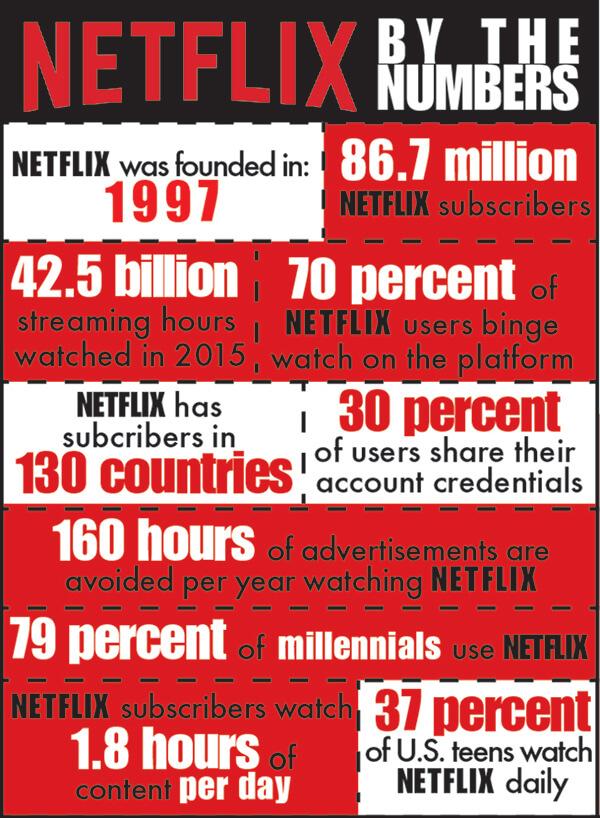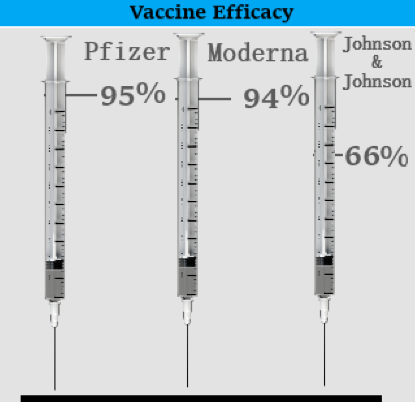Trend “binge-watching” OK in moderation
“Are you still watching?”
The simple, white font shames you, glaring. The question makes you realize how long you’ve been sitting there watching Netflix. You look away from Grey’s Anatomy, Stranger Things or some other popular show you’re watching in mass quantity and realize you’ve been sitting there for hours. Yet, you still can’t pull away. You click continue watching and choose to ignore that this may or may not be the fourth episode that night.
“I personally binge-watch at times,” freshman Addison Speier said. “I have noticed a huge trend in binge watching over the past couple of years and I think it’s because of services like Netflix that give you the means to watch that much in one sitting.”
Netflix put out data at the end of the 2015 year that many saw as an eye opener. The numbers told that over 100 million hours of television were watched per day through the streaming service. This added up to 10 billion hours per month, and 42.5 billion streaming hours in 2015.
“Modern TV is just getting more and more interesting in the eyes of others,” senior Kodi Custine said. “Catching all the shows when they first air can be hard with the schedules of busy high school students. So, I can totally see why binge-watching may be a trend.”
In a survey put on by Netflix in 2014, 73 percent of participants defined binge-watching as “watching between 2–6 episodes of the same TV show in one sitting”. 61 percent of participants also said they binge-watched regularly. Netflix said 70 percent of users pull long watch streaks.
While sitting in front of a screen watching the latest plot-twist may be all watchers care about, doctors are urging viewers to break up their TV time.
“There are several health effects, actually,” family practitioner Jennifer Brull said. “Too much of electronics can cause headaches, sleep problems and eye strain. And if people spend all their time watching a screen, they aren’t doing important things like exercising, so indirectly there can be weight gain, which can lead to other problems like diabetes and high blood pressure.”
The American Academy of Pediatrics recommends no more than two hours of screen time each day.
“I tend to recommend less than that if possible,” Brull said. “I think it will all just lead to a rise in obesity.”
The immediate problem Brull brings up for teens binge-watching is the light from the screen prevents the brain from releasing melatonin, the chemical that signals the need to sleep.
“You wind up not sleeping well and waking up tired the next day,” Brull said. “But, like many things, the answer is ‘all things in moderation’. If you don’t spend too much time on electronics, they aren’t likely to hurt you.”
Senior Maddie Keller also believes that it is ok to binge-watch if it is in moderation.
“I’ve noticed that people want to catch up to where their friends are so they can talk about it so they’ll stay up all night watching the show,” Keller said. “It isn’t healthy, but if they do it rarely then it is ok. Moderation. Personally, I can only watch about two to three episodes in a row because I get bored or tired with them and have to rewatch. I’m sure others do the same, so it’s all ok.”
17mcrees@usd489.com

Madison Crees is in her third year of newspaper. She is honored to be serving as Co-Editor in Chief. Madison, commonly known as Maddie, is involved in...

Tiana Lawson is a senior and this is her first year participating in Newspaper. She is also involved in Yearbook, Webteam, and STUCO. Tiana loves her family...












Brodie Schuckman • Nov 29, 2016 at 2:47 pm
“You wind up not sleeping well and waking up tired the next day.”
Another good reason to stay away from the TV, and make your life a little more productive. Even though I haven’t officially operated such a device in years, as my own interests dragged me away from something that slowly takes the day away.
Isaac Howard • Nov 30, 2016 at 11:29 am
Wisely said Brodie.